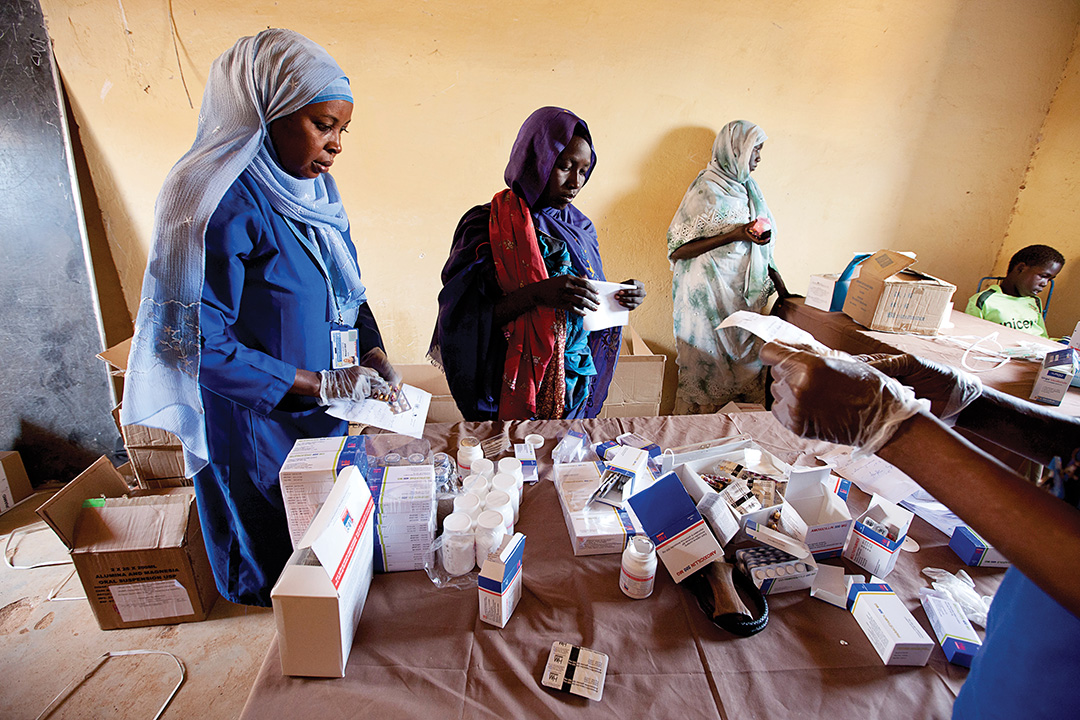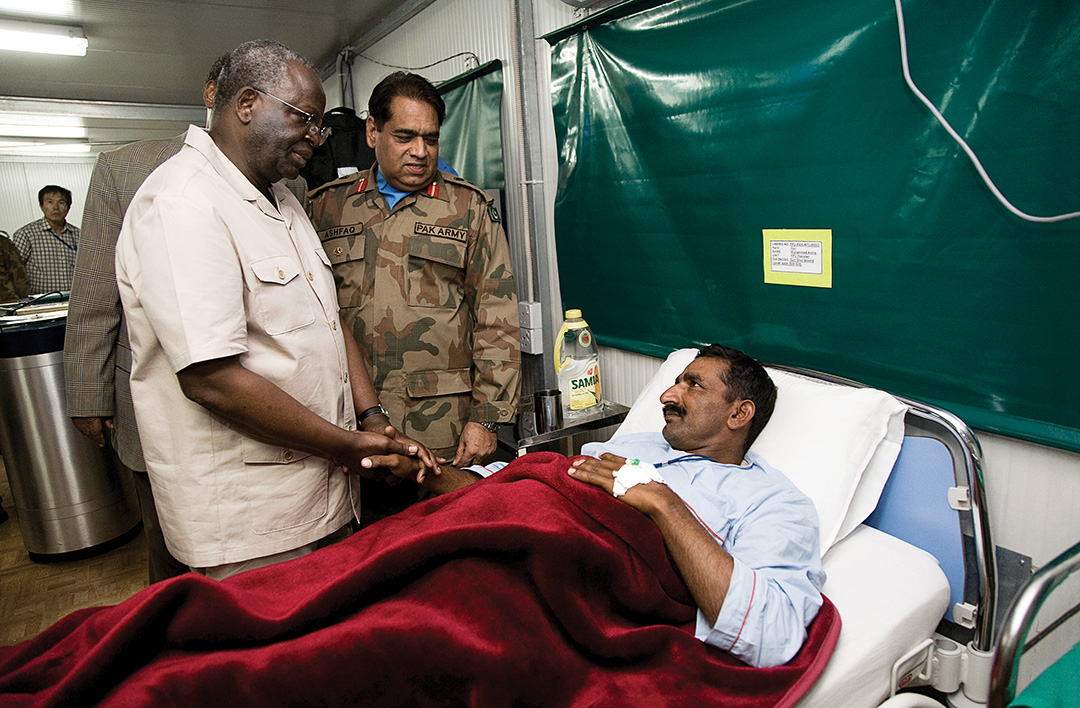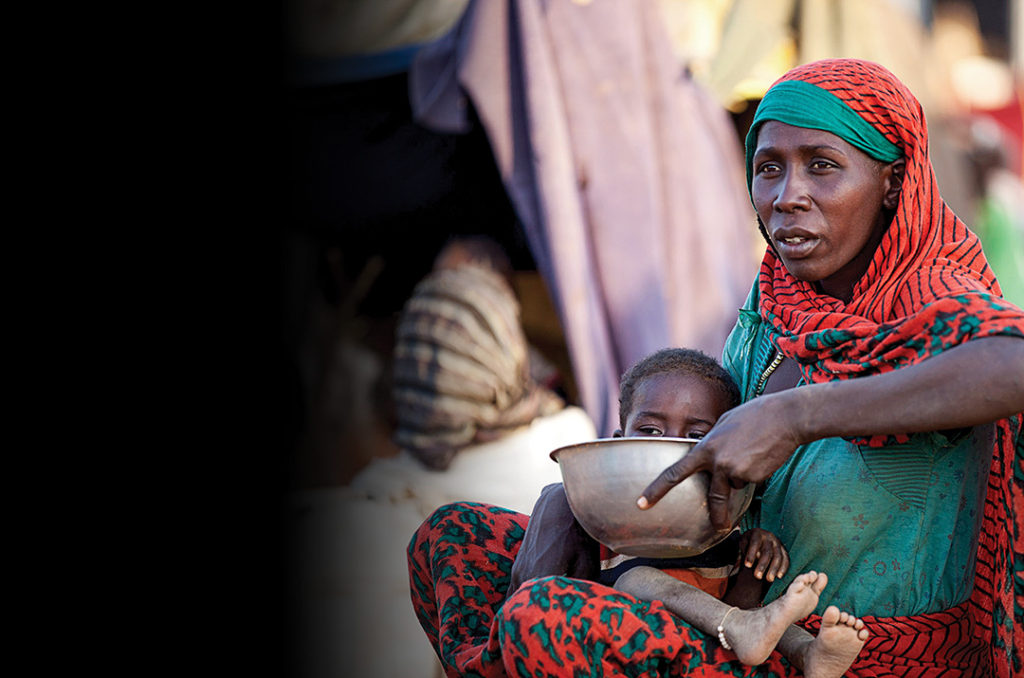United Nations peacekeeping troops from Pakistan have helped bring peace and security to Darfur
Pakistan’s experience with United Nations peacekeeping began in July 1960, when the first Pakistani contingent was deployed in the Congo. Since then, Pakistan has contributed more than 160,000 troops in 41 U.N. missions in 23 countries. Of those, 144 peacekeepers, including 23 officers, have sacrificed their lives while performing their duties as of late 2017. At present, Pakistan is the fourth largest Troops Contributing Country (TCC), with 7,653 of all ranks deployed on seven U.N. missions. One of those is the African Union-U.N. Mission in Darfur (UNAMID).
What our nation’s founder, Quaid-e-Azam Muhammad Ali Jinnah, noted decades ago still rings true: “Our foreign policy is one of friendliness and goodwill towards all nations of the world. Pakistan will never be found lacking in its material and moral support to the oppressed and depressed people of the world and in upholding the principles of U.N. Charter.”
The Darfur mission
Darfur is a region of 493,180 square kilometers in western Sudan that was an independent sultanate for several hundred years until it was incorporated into Sudan by Anglo-Egyptian forces in 1916. Islam is the main religion, and the populace is divided into two communities, Arabs and Africans, who are further divided into many tribes scattered over Darfur. Africans are primarily farmers, and Arabs are nomadic herdsmen. The basic dispute between African and Arab communities revolves around power and resource sharing.

The recent conflict in Darfur began in February 2003, when two armed groups — Sudan Liberation Army (SLA) and Justice and Equality Movement (JEM) — took up arms against the government for allegedly neglecting the region and oppressing black Africans in favor of Arabs. The government responded with a campaign against the rebels that was later termed ethnic cleansing of Darfur’s non-Arabs. The conflict resulted in massive killings of unarmed civilians and ousted 2.5 million people from their homes, making them internally displaced people (IDP). Darfur is divided into five federal states that also correspond to the operational zones/commands of UNAMID: Central Darfur, North Darfur, South Darfur, East Darfur and West Darfur.
Pakistani Battalion-5 (PakBatt-5) pursued the U.N. mandate with full devotion and achieved significant results in the Kutum subsector through untiring efforts lasting 10 months. Pakistani troops stabilized the situation through a combination of efforts that included aggressive patrolling, engaging communities’ leadership and introducing intercommunity dialogue. PakBatt-5 has done all it can to assist the locals IDPs. Therefore, the Pakistani contingent enjoys a good reputation among the populace. PakBatt-5 has regularly conducted civil-military-cooperation (CIMIC) activities and welfare projects: hosting intercommunity workshops, providing water to villages and schools, establishing medical camps and distributing free medicine. It also visits schools to distribute supplies, conducts frequent lectures about health and hygiene, organizes sports tournaments, renovates schools and hospitals and celebrates cultural and religious festivals for local citizens and IDPs.
Success and security
The Kutum subsector was considered the most hostile region in Darfur because of rebel activities. No high-level official delegation from UNAMID or the government of Sudan had visited the region for years. After the Pakistani contingent arrived and restored peace, a number of high-level officials/delegations from UNAMID, Sudan and international nongovernmental organizations visited Kutum. They include the ambassadors from Germany and Switzerland, the first vice president of Sudan and the heads of the World Food Programme and World Health Organisation. All acknowledged and appreciated the efforts and contributions of PakBatt-5 to bring peace back to a region that remains a potential flashpoint for UNAMID.
Now that peace is prevailing in the region and PakBatt-5 has provided the populace a platform for protection of human rights, economic improvement, promotion of social and moral values and, most important, improved local humanitarian conditions. The progress made by PakBatt-5 in these challenging conditions is a source of pride for Pakistan.
Pakistan Engineers Company
Pakistan Engineers Company was deployed in this mission in December 2007 and completed its ninth rotation in March 2017. It’s a multirole outfit, entailing all engineer trades. Its mandate is to provide engineering support in the areas of mobility, survivability and general engineering to support the overall military mission.
The Pakistani engineers repaired Airport Ring Road, a 10-kilometer-long all-weather track constructed for patrolling vehicles and security personnel along the perimeter of the local airport. Before the repairs, the road’s loose, boggy sand hindered security.
The road was completed successfully over three months, a cumbersome task involving hauling water and quarried material over long distances.
Another project called the Ardamata Valley Flood Protection Works was one of the most significant achievements of Pakistani military engineers. It turned out to be a significant confidence-building measure between UNAMID and the government of Sudan. Construction of a 1-kilometer gabion wall and excavation of a 1.2-kilometer diversion channel — completed in one month — protect the road connecting El Geneina Airport and an IDP camp from flash floods in the rainy season.
Mine awareness
U.N. international day for mine awareness and support was organized on April 3, 2017, by the engineers in collaboration with the authorities at the El Geneina camp. It was held in memory of mine victims of Darfur in general and El Geneina in particular. It was aimed at educating the people of UNAMID and El Geneina regarding hazards and precautions against unexploded ordinance, mines and improvised explosive devices. The day was celebrated with a friendly football match between teams from UNAMID and El Geneina. The overall impact of the event was remarkable and appreciated by all.
Pakistani engineers even arranged for Darfur Christians at the El Geneina camp to celebrate Easter in April 2017 with special church services, music, candlelight, flowers and the ringing of church bells.
A CIMIC success
Sortoni IDP camp in North Darfur holds more than 20,000 people, who had only one mosque housed in a temporary structure with a corrugated iron sheet roof and stony floor. IDPs had long requested renovation of this mosque, and the Pakistan Engineers Company completed the work in two weeks.
The company ensured the use of good engineering practices — no compromise on quality was accepted. Proper curing was carried out for the cement work. The roof got additional anchorage to protect it from Sudanese sandstorms known as haboobs. With a contribution from contingent headquarters, additional works have been carried out, including construction of a cement floor for the mosque’s main hall and construction of two cupboards. Gifts of Holy Qurans were provided for the mosque.
The Pakistani contingent’s work for the grief-stricken populace of the Sortoni IDP camp has provided a source of internal peace to the community, a success of “winning hearts and minds.”
A vital hospital
Since the beginning of UNAMID in 2008, the Pakistan Army Medical Corps has shouldered the responsibility of establishing and maintaining the mission’s only Level III Hospital, located at Nyala, Darfur. The Pakistani hospital represents the highest level of military medical facility available to the troops serving in Darfur as well as to the national and international civilian staff. The U.N. Pakistan Field Hospital-I pioneered this skilled, advanced and highly professional health care setup. Pakistan Field Hospital-9 has performed its assigned responsibilities since March 2017.
Pakistan Level III Hospital is recognized for extending quality medical services for its clientele and is acknowledged as “The UNAMID Healers” across the mission area of responsibility. The hospital has always been appreciated at all levels for exhibiting skilled professionalism and accomplishment of the assigned mandate. Pakistan Military Field Hospital has set standards of excellence to be followed and acquired by medical setups of various countries performing duties in UNAMID.

The hospital is equipped with the latest primary care, multidisciplinary specialized care, advanced surgical services, dental services, mental health services, an intensive care unit and a skilled Aero-Medical Evacuation Team.
Aside from looking after the national and international civilian and military personnel of the U.N., the hospital provides medical care to a large number of Sudanese on humanitarian grounds. The hospital has treated many accident cases, complicated medical cases and other serious emergencies of the local civilian population completely free of charge.
The hospital has treated more than 82,000 patients, and more than 11,000 surgeries have been performed since August 2008. The number of patients given dental treatment, indoor treatment and rehabilitation is significant. Similarly, a radiology and pathology department has provided diagnostic facilities for patients. A total of 34,805 IDPs have been treated at the hospital.
Over the years, Pakistan Level III Hospital has earned respect and honor for the country and Army in civilian and military circles of the U.N. and Sudan. The professional excellence of the Pakistan Army Medical Corps has been acknowledged throughout the mission and U.N. headquarters.
The impressions imprinted by this hospital on the hearts and minds of the patients and visitors will surely last a long time and act as a reminder of the success of the overall Pakistani peacekeeping mission to Darfur.
A version of this story appeared in Hilal magazine.

